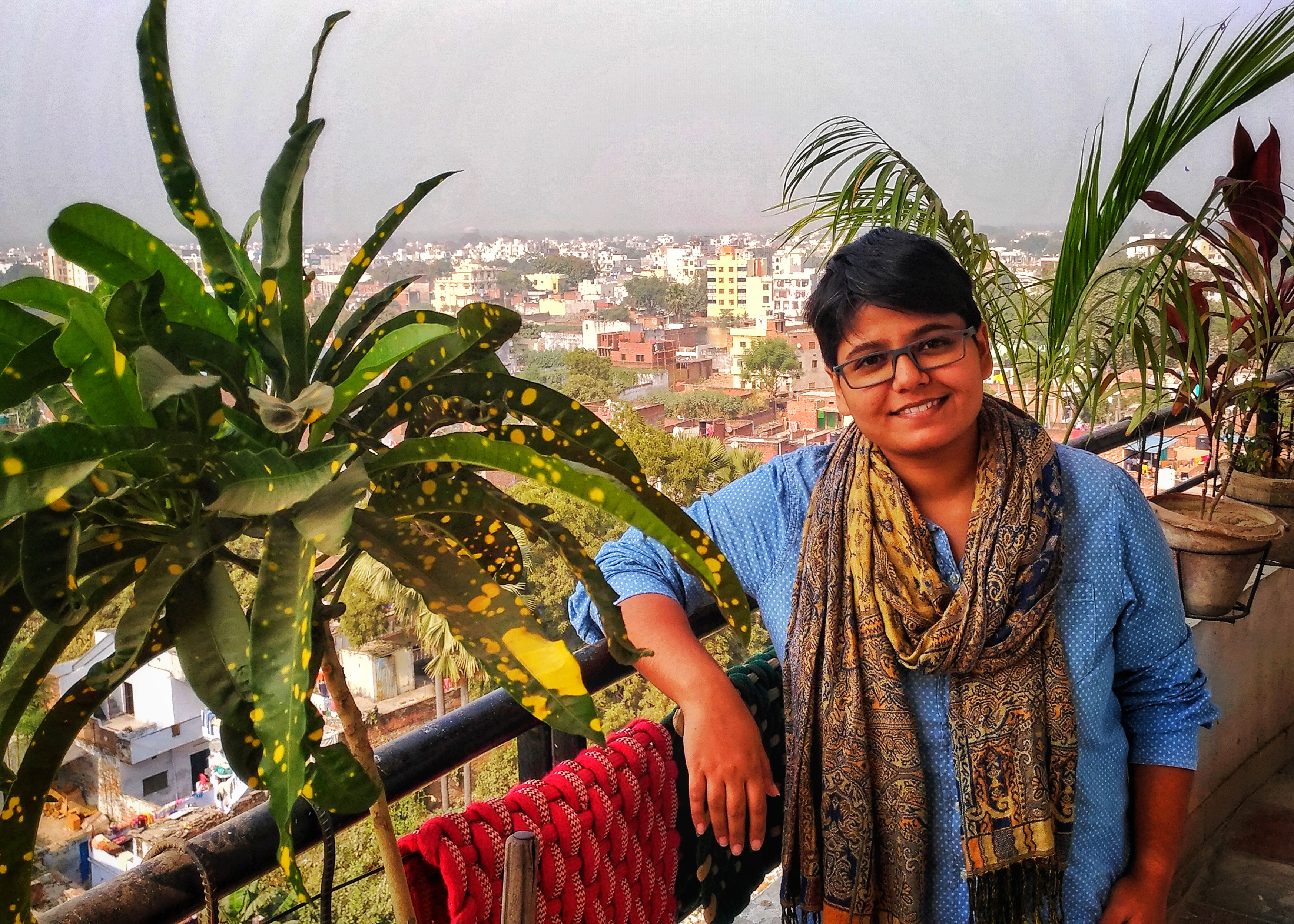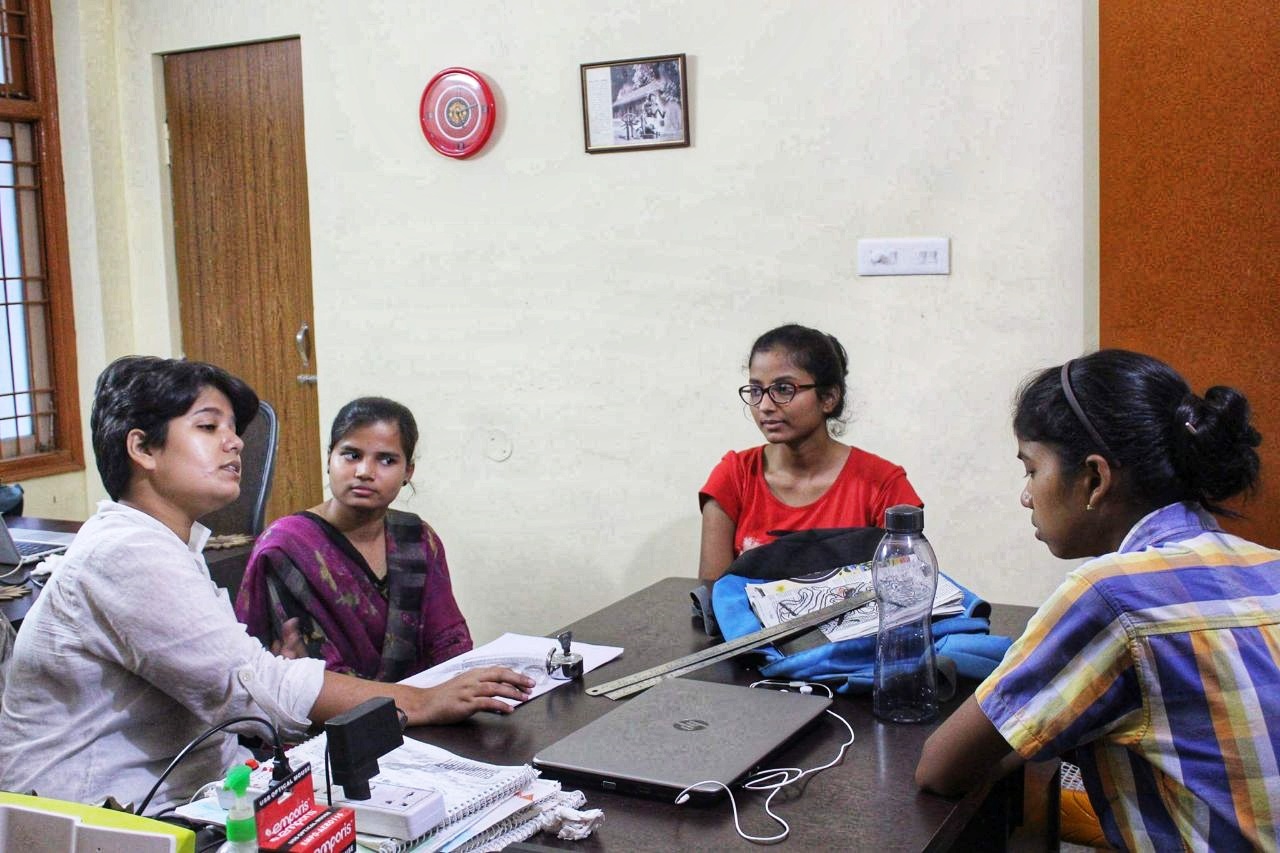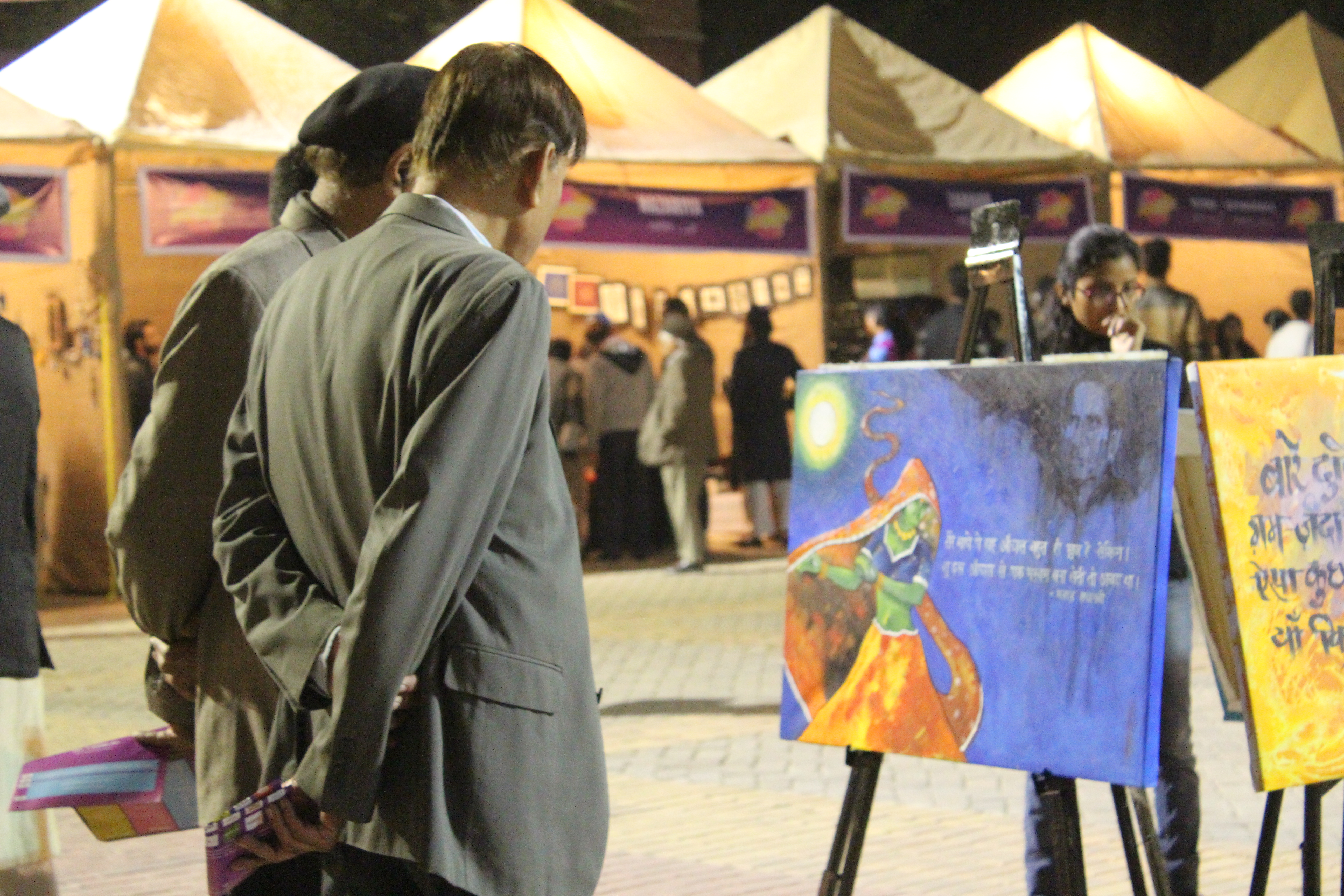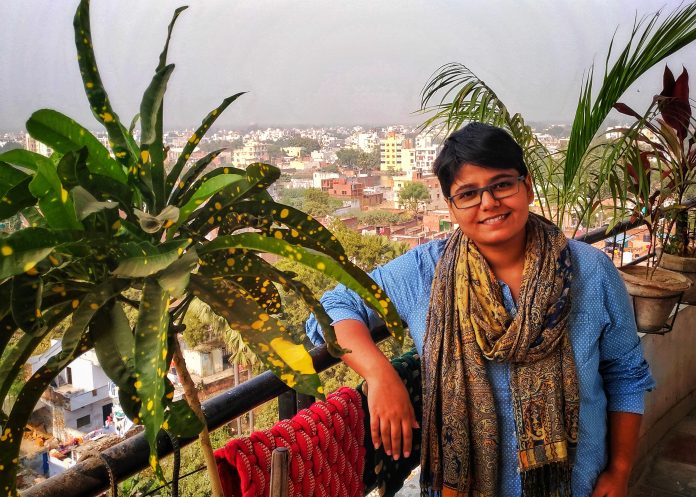
By Siddhant Mohan, TwoCircles.net
She lived through a tough childhood and now she is the voice for many young art aspirants who are willing to exhibit and sell their artworks but have no knowledge. Sana Sabah, a 27-year-old girl from Varanasi, is the CEO of “Shuruart or Shuru(A)rt”, a startup which she joined as an employee but soon went on to become the face of the organisation.
“It was 2015 when I heard about ‘Shuruart’ when it was about to start. I met Gaurav Tiwari for the same, so I was offered the role of content writer for the Shuruart,” said Sana about her role with the startup.

Sana Sabah’s actual role was to interview and profile young students-cum-artists studying and working at Banaras Hindu University. After spending a considerable amount of time with the artists, Sabah understood that it is not the profile one artist needs.
“I learnt it through our interviews that artists have been facing scarcity of exposure in the art world. They have been creating the artwork which is limited to their studios,” said Sabah, who realised her work during interviews of more than 50 artists from Varanasi.
This period saw Sabah progress from being an interviewer and content writer to become an art curator and art enthusiast, which has given exposure to around 90 young artists in just two years of time.

Born in 1990 in Varanasi, Sabah soon moved to the neighbouring city of Chunar. While she and her sister were in their primary education, the famous Chunar cement factory closed and her father lost his job. Despite many assurance from many government and non-government bodies, the financial condition of the family remained in distress.
Sabah said that for seven years, the family went through tough times. The family managed to get some help from Sabah’s maternal side, but as Sabah tells, “During all this, my parents had only one priority – the education of me and my sister.”
Sabah’s family couldn’t compromise on her education, so she relocated temporarily to Delhi for education until her parent settled somewhere. She spent two years in Delhi at her uncle’s residence and then she came back and started school at the Central Hindu Girls School, affiliated with BHU.
Soon after her High School, she chose commerce stream and started working in theatre groups of her college. It was her passion for writing which took her towards Mass Communications and Journalism for Masters in BHU.
Rejected from five jobs at corporate-driven news channels, Sabah moved towards various freelancing opportunities and later started working with Shuruart. “I was trained but I was not groomed enough to work in the corporate culture. After that when I started with Shuruart, I learnt the true purpose of my training and education.”
Before Sabah, Shuruart could manage to get only 10 to 15 artists on-board. But that number grew as soon as Sabah joined the organisation.
Shuruart oversees all the resources – besides ideas – required for a painting. Shuruart provides canvases and colours to the artists. Artists – who are the graduate and postgraduate students from the visual arts faculty of BHU – work around a theme and provide the completed artwork to the Sabah and her organisation.

After receiving the completed work, Shuruart stretches, frames and protects the paintings and makes those ready for various exhibitions and sales. “We do not charge a single penny to the artists, instead artists get definite and considerable cuts when someone buys their original artworks,” said Sabah.
For Sabah, it was a tough job to convince artists to submit their work. “They were influenced by the BHU faculty that we might steal their artworks, but I have been trying hard to convince them,” said Sabah.
Almost every artist working with Sabah and her organisation come from a marginal background. The parents of many of these artists have been working as labourers, small business owners and other similar professions. But with Shuruart and Sabah, the same artists are getting exposure and earning, if their paintings get picked up at a right price.
“The art culture is very important. In our very short period, we have seen many exhibitions where even organisers crave for funding. Moreover, they do not seem much interested in the art and its culture,” said Sabah. “So we tend to avoid exhibitions where organisers do not have any leaning towards arts,” she added.
Sabah thanked Craig Dicker, the cultural affairs officer at US Embassy, New Delhi, for his involvement in the cause which Shuruart believes. Dicker provided Shuruart with the first Delhi exhibition, which Sabah describes as a “turning point” in her and her organisation’s progress.
Another inspirational and ambitious project which Sabah’s team kick-started is “Let’s Start Art”, in which two of her team members Karishma and Sandeep go to Government Primary Schools of Varanasi and manage art workshops for children. “Art is the subject where government school put the least attention. So we take one of our artists to the schools and provide kids with papers and colours and some idea to draw something. The results are amazing,” said Sabah while talking about more than 70 workshop sessions conducted in five government schools of the city. “Kids ask us: When will we visit next time?” she says.
Working with Gaurav Tiwari, Neha Vashistha, Sandeep Verma and Karishma, being a Muslim has never been a problem for Sabah. “But being a woman has always been, people look differently towards me giving orders or conducting something,” said Sabah. “And one of the biggest achievement, for me, is that we have somehow succeeded in enhancing the women’s representation in the art field. Because women were always staying back for many reasons,” she added.
With little or no hope from the government in terms of funding, Sabah seeks proper funding – which these days is running through bootstrapping – and a proper revenue model for the arts and artisans. “Along with BHU, we are trying to get artists from Patna University also. We hope to increase the number of young artists and provide them exposure and income if we get some funding.”


